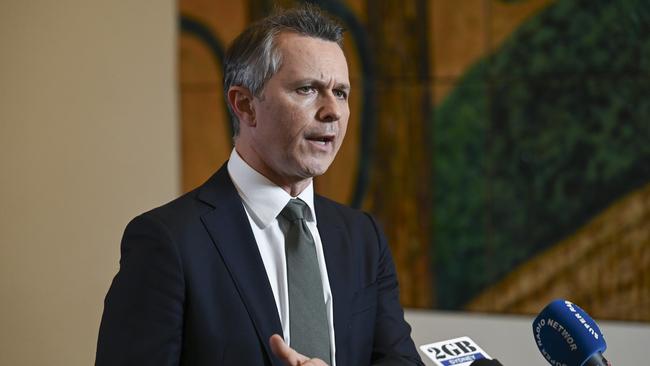Education Minister Jason Clare won’t use full powers on student caps
Education Minister Jason Clare says he won’t regulate international student numbers for individual courses.

The federal government will take a middle course in applying its controversial policy of capping the number of international students in Australia and promised not to use its interventionist powers to the fullest extent.
Education Minister Jason Clare said the government would focus on giving each university and college a cap on the overall number of international students it enrols but would refrain from regulating the number of international students in each course.
“In a sense that’s a reserve power,” Mr Clare told Sky News.
“I’m expecting the focus here and the work that we’ll do will take place over the next three months to set what those caps are, but the focus will be on the caps for the institutions rather than the courses.”
Legislation that is before parliament will, if passed, give Mr Clare wide-ranging powers to limit international student enrolments individually for each of the approximately 1400 universities and colleges that are licensed to enrol students from overseas. Mr Clare justified the caps – which are hotly opposed by an overwhelming majority of universities, colleges and the international education industry generally – saying international students returned faster than expected after the pandemic.
“There’s about 10 per cent more international students in our unis today than before the pandemic, and there’s about 50 per cent more international students in our vocational institutions than before the pandemic,” he said.
Not mentioned by Mr Clare is that the vocational education sector has been hit particularly hard by the government’s decision last December to restrict international student visas. In the 2023-24 year (up to the end of April) 15,400 student visas were issued for vocational college students arriving in Australia, compared with 130,426 for higher education students.
Mr Clare said “many universities” had asked for caps on international students.
“So a lot of universities, in particular the smaller universities, have said to me, ‘We’d prefer a different system where you set a level or a cap for us each and every year,’ and that’s what this legislation does.”
In April University of Tasmania vice-chancellor Rufus Black backed limits on international student numbers saying the way they are “distributed around the nation” needs to be managed.
Tasmania is a university that is struggling to enrol international students, and its support for caps stems from a hope it would benefit from them.
It is understood that the government has decided not to put caps on the number of international students in schools, English language colleges, and non-award courses (which don’t lead to official qualifications). It also has told the education industry that exchange students won’t be capped.




To join the conversation, please log in. Don't have an account? Register
Join the conversation, you are commenting as Logout